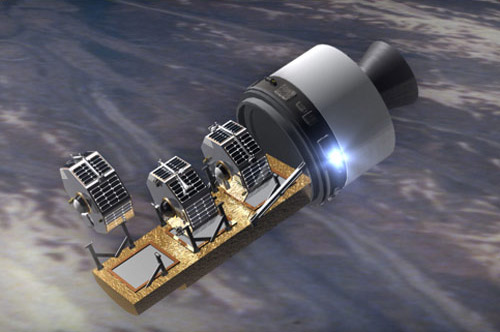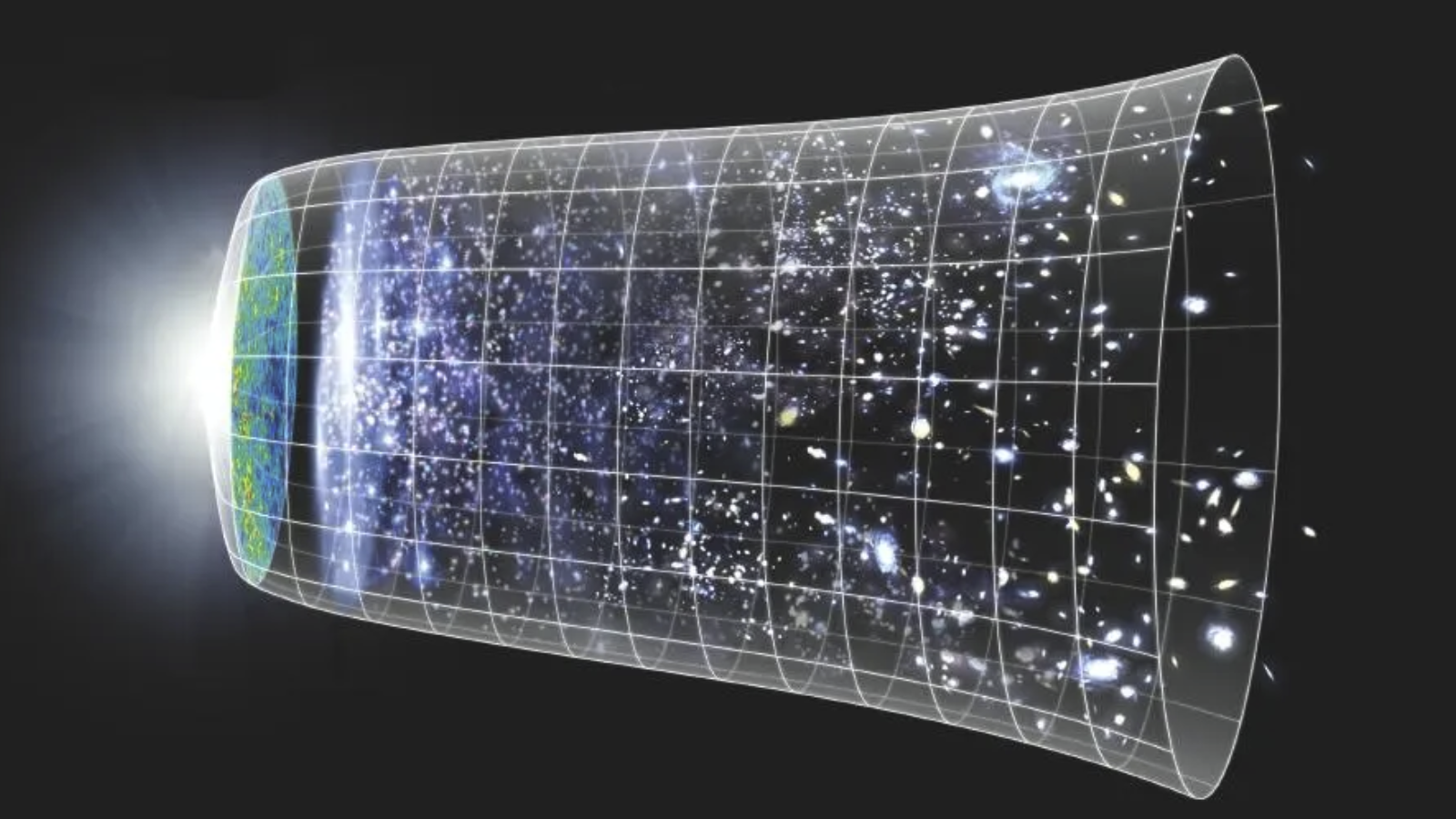NASA Scrubs Launch of Microsatellite Trio

Breaking space news, the latest updates on rocket launches, skywatching events and more!
You are now subscribed
Your newsletter sign-up was successful
Want to add more newsletters?
A lastminute glitch forced flight controllers to scrub the Wednesday launch of three NASAmicrosatellites and their Pegasus rocket Wednesday.
The launchabort occurred less than two minutes before NASA's SpaceTechnology 5 mission was set to rocket spaceward from its mothership, an L-1011 jet aircraft, 39,000 feet (11,887 meters) in sky. A locking pindesigned to hold the mission's Pegasus booster to the parent jet'sundercarriage failed to release before the rocket's fin batteries ran out, preventingits planned 9:25 a.m. EST (1425 GMT) launch, NASA officials said.
"That'sgoing to be a 48-hour delay for us at least to change out the fin batteries,"said Omar Baez, NASA's assistant launch director at the mission's VandenbergAir Force Base takeoff point in California.
However, anofficial flight date remains to be determined while engineers determine why thelocking pin stuck and an available launch date is selected, mission managerssaid.
"We don'tknow how long the postponement will be at this point," said NASA launchcommentator George Diller after the scrubbed space shot.
NASA'sSpace Technology 5 mission is part of the agency's NewMillenium program to develop and test new technologies for futurespacecraft.
Each of themission's three, cake-sized probes weighs 55 pounds (25 kilograms) and carrysix technologies to be tested, ranging from a new microthruster for orientationto a skin-like radiator and software for autonomous ground operations.
Breaking space news, the latest updates on rocket launches, skywatching events and more!
The probesalso each carry a boom-mounted instrument that will be deployed after launch tostudy the effect of space weather on the Earth's magnetosphere, missionscientists said. The $130 million mission is slated to last about 90 days, NASA said.
- Launch Countdown Coverage of NASA's Space Technology 5 Mission
- Poor Weather Threatens NASA Space Technology Launch
- Technology Test: NASA Microsats Set for Launch

Tariq is the award-winning Editor-in-Chief of Space.com and joined the team in 2001. He covers human spaceflight, as well as skywatching and entertainment. He became Space.com's Editor-in-Chief in 2019. Before joining Space.com, Tariq was a staff reporter for The Los Angeles Times covering education and city beats in La Habra, Fullerton and Huntington Beach. He's a recipient of the 2022 Harry Kolcum Award for excellence in space reporting and the 2025 Space Pioneer Award from the National Space Society. He is an Eagle Scout and Space Camp alum with journalism degrees from the USC and NYU. You can find Tariq at Space.com and as the co-host to the This Week In Space podcast on the TWiT network. To see his latest project, you can follow Tariq on Twitter @tariqjmalik.
